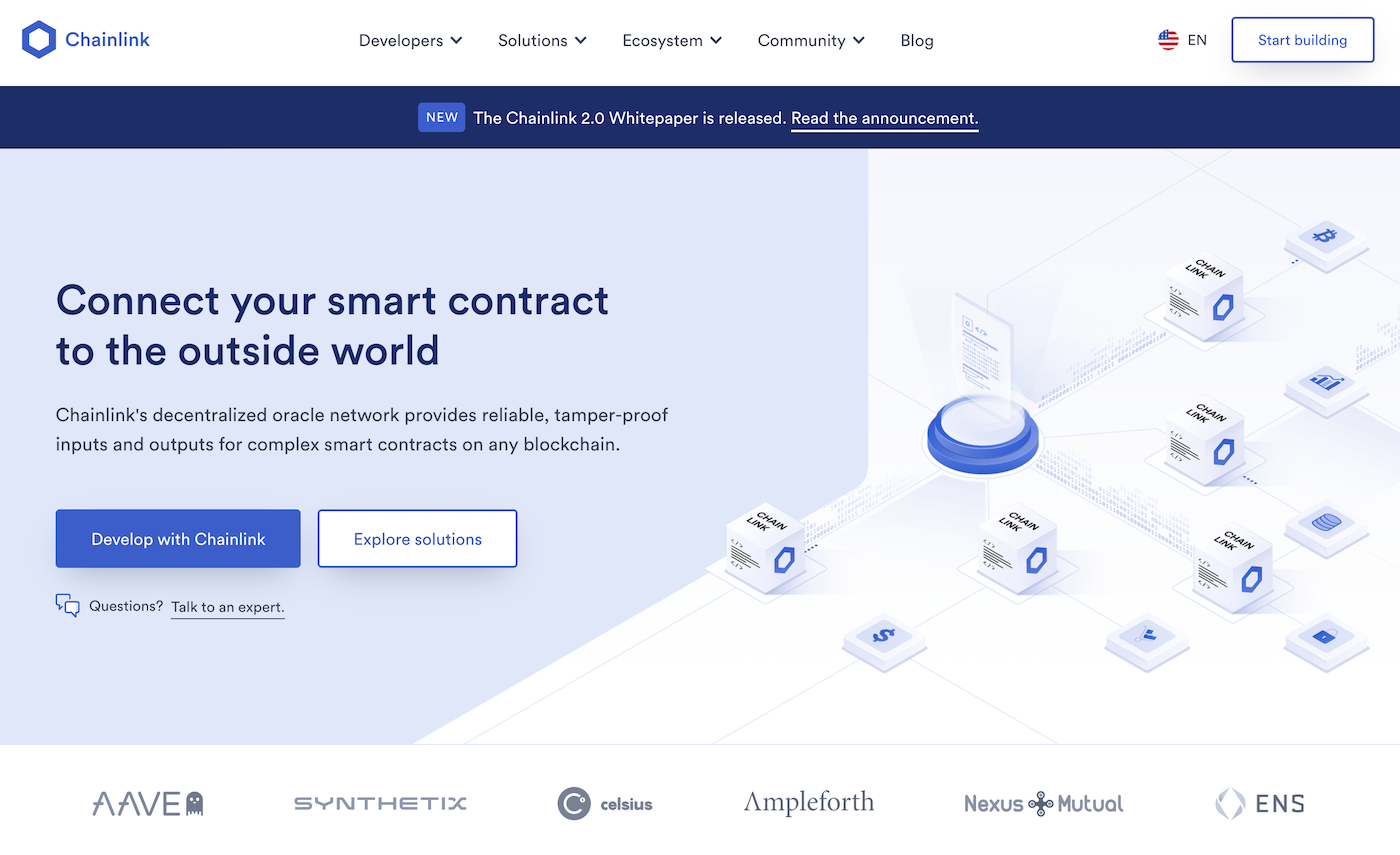Super connecting, Chainlink, and being human in the 2020s

Click here to view this email in a web browser
Greetings all,
I hope your May is off to a great start.
In this week’s episode of Ventures, my guests Weston Woodward, Sol Cates, and I discuss community building from a personal, startup, and local city perspective. We talk about how to listen and ask questions, effectively connect people to help raise the tide for everyone, advice for startup founders, and thoughts about social media and the future of communication in the Web 3.0 era.
Check it out: Connecting people, building community, and learning from super connectors :: with Weston Woodward and Sol Cates
Chainlink
“Chainlink's decentralized oracle network provides reliable, tamper-proof inputs and outputs for complex smart contracts on any blockchain.”
I listened to this recent podcast with Sergey Nazarov, the co-founder of Chainlink. For the Web 3.0 nerds amongst us - or anyone interested in the future of society and technology - I’d highly recommend it.
“Oracle networks” is a phrase that essentially means “sources of reliable information”. These oracles are important because they inform how smart contracts behave. If you still aren’t sure why that’s a big deal, a few examples from the podcast stood out to me:
- An SEO expert that only gets paid when a specific ranking on Google is reached.
- A politician that, when/if elected, has their fiscal plan enacted by a smart contract.
- An insurance company that uses drones and computer vision to ensure all workers on a construction site are wearing hard hats.
You can extrapolate from here. Basically anything that can be reliably measured and confirmed can be turned into an oracle and fed into a smart contract, which can then perform something interesting (like sending money from one place to another, which is only the beginning of the possible use cases).
Plus, as the Staking Economy folks recently wrote:
“Chainlink released their whitepaper for Chainlink 2.0 on April 15th. Chainlink 2.0 introduces the concept of super-linear staking (or quadratic staking) to ensure nodes are incentivised to always report correct values (as agreed upon by other nodes).”
This is important (and fascinating!) progress. Having a reliable network of staking players who report “correct values” is, of course, key to a vibrant Web 3.0 future.
Being human in the 2020s
Taking a step back, it’s fascinating that oracle networks - and many folks in popular media today - avoid using the controversial word, “truth”. The age-old question “What is truth?” in many ways is front-and-center in the Web 3.0 conversation (and beyond) but rarely talked about in depth.
What’s up with that?
In one sense I see this as a good thing. People conflate their biases and dogmas as “truth” and unhealthily impose those on others.
In another sense, however, we have lost common ground to stand on.
I applaud Chainlink’s efforts to create reliable oracle networks, as this will inevitably approach bringing clarity to the ambiguity of language and culture. But what kind of oracles will we create beyond simple “correct values”?
Or to say it another way, how can we become more “human” this decade? How can we love one another, empathize with other cultures, understand that nobody is perfect, and learn from our mistakes?
I’m less nervous about this now than I was six months ago. I see more people listening to podcasts and content from reasonable thinkers, and - as Weston said in this week’s podcast, “good” is winning. Good people are flourishing. This is encouraging.
Do you see it, too? How do you see the rest of this decade playing out?
I remain, as always, cautiously optimistic :)
Have a great rest of your week!
~Will